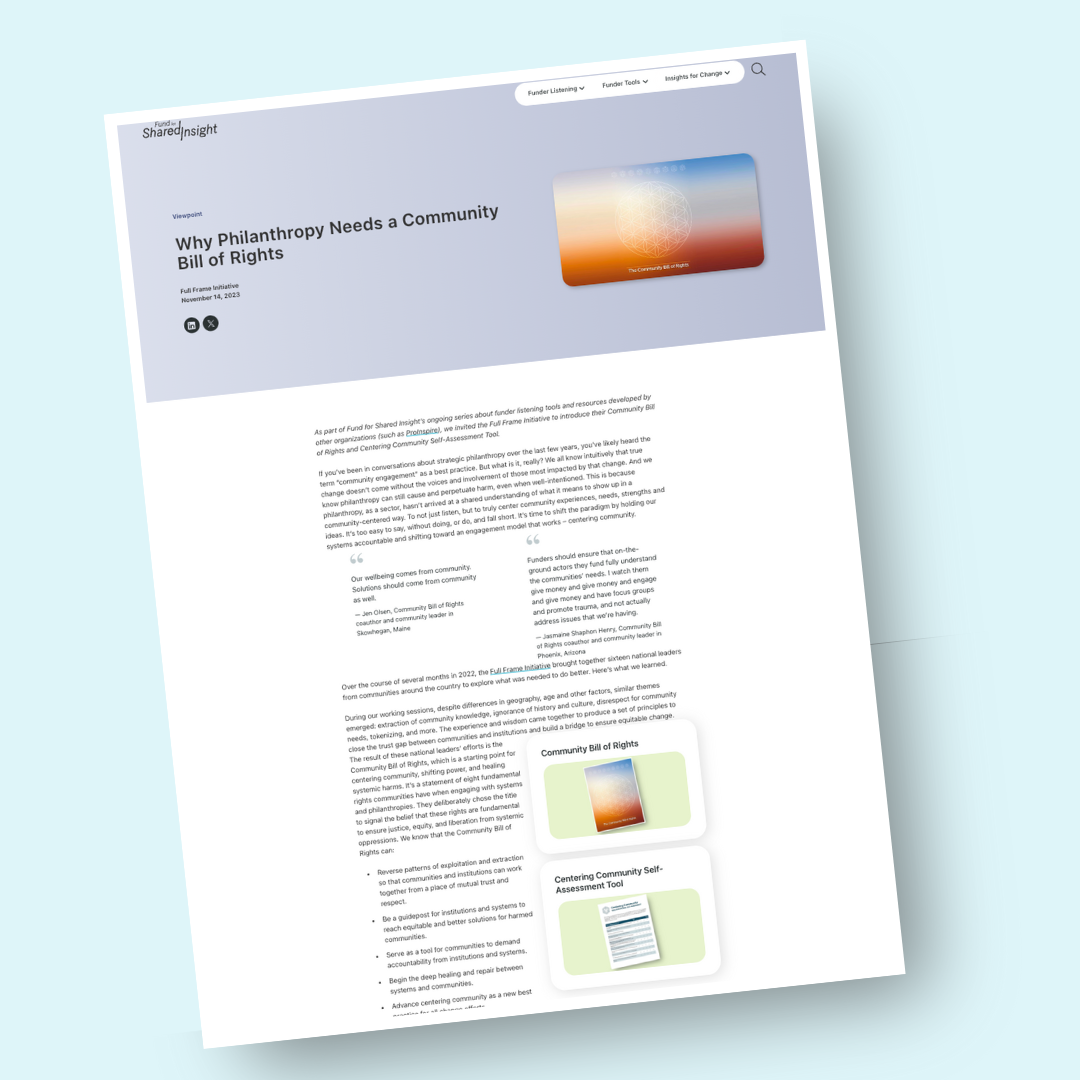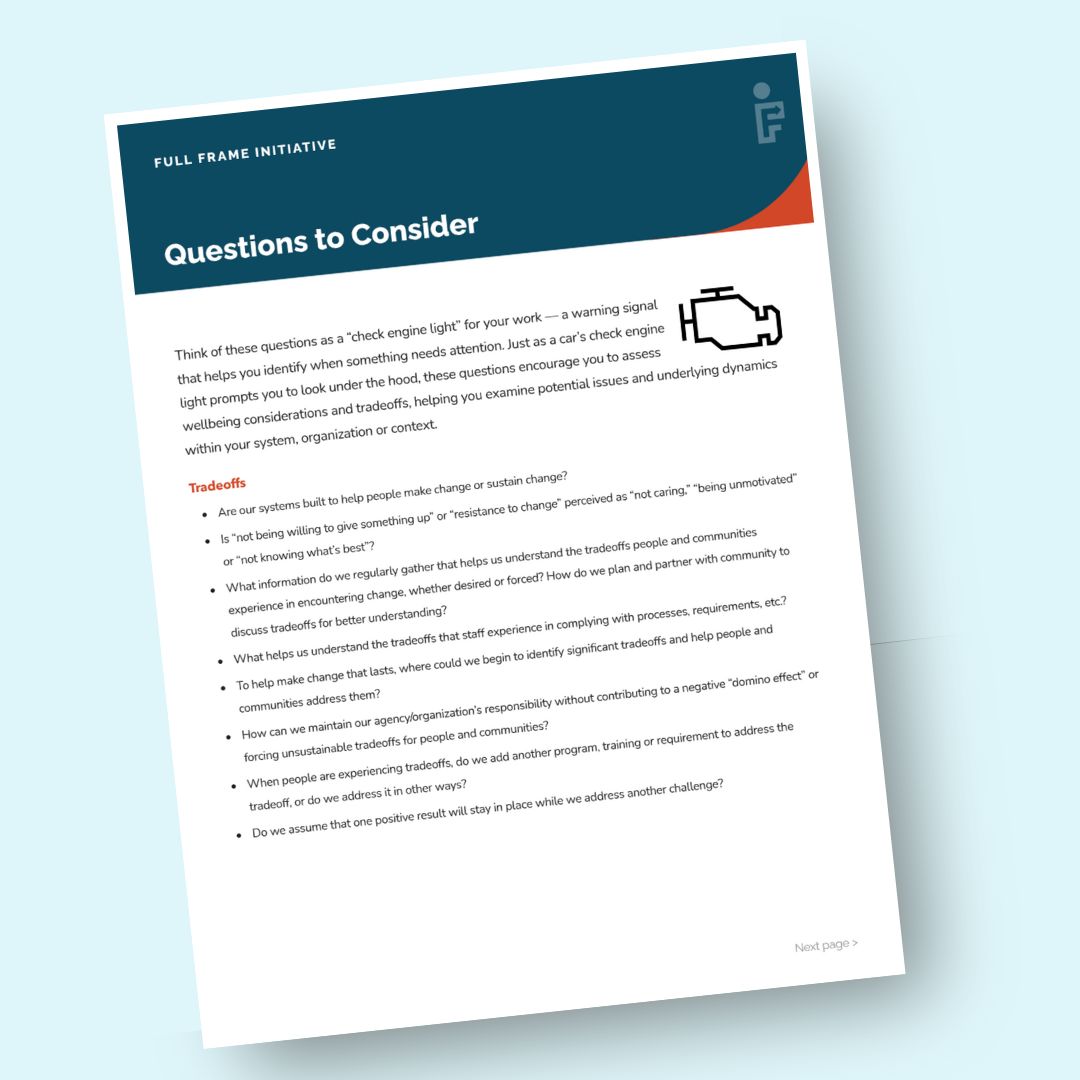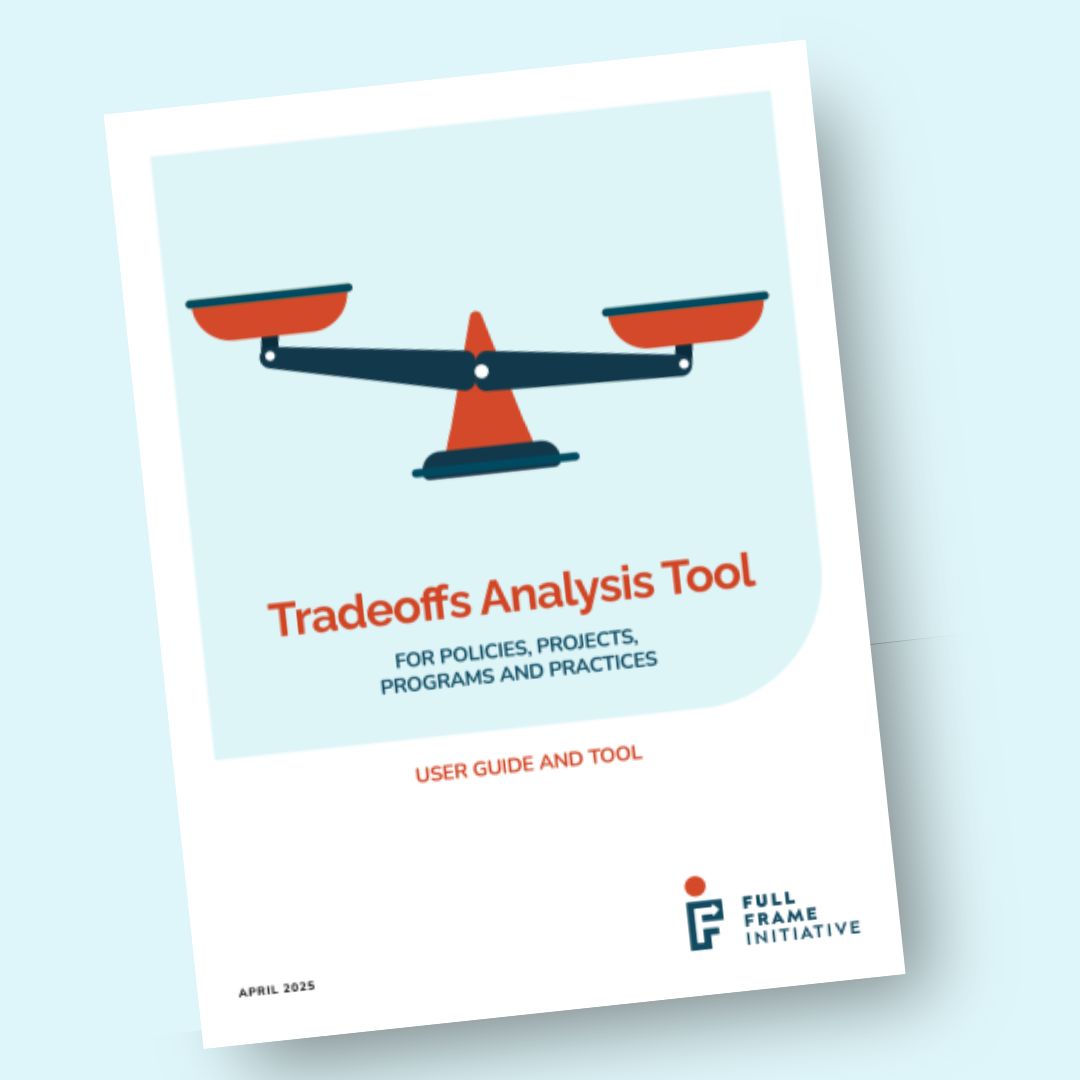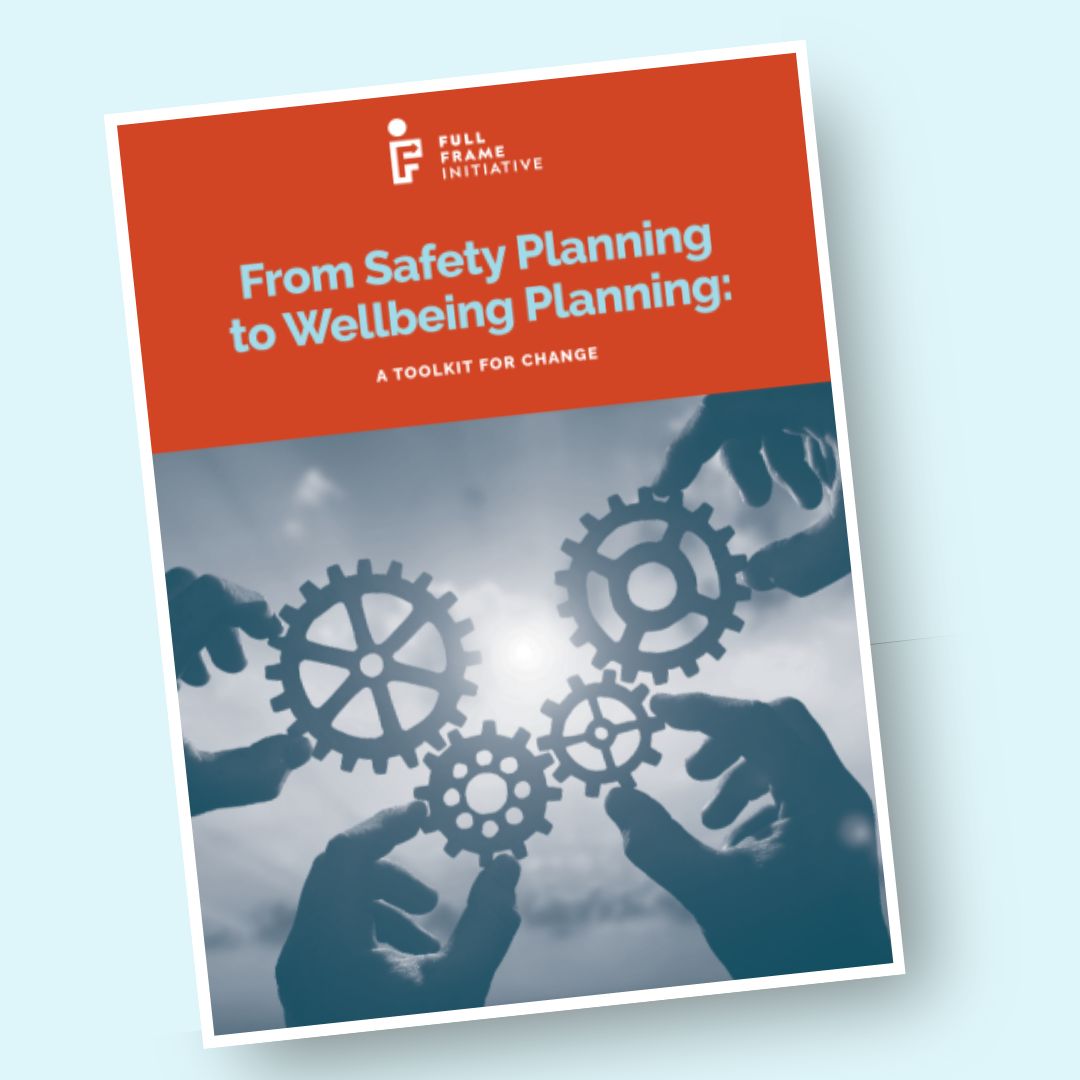
Is it any surprise there is a trust gap between philanthropy and community? Too often, donors come into communities thinking they have all the answers, or make tokenizing and extractive attempts at “listening” to community needs. Even well-intentioned community engagement falls prey to harmful practices when the power dynamics at play aren’t acknowledged or interrogated. A paradigm shift is needed to not only heal these harms, but also to bring transformative results.
We’re grateful for the opportunity to share learnings and recommendations for centering community with the Fund for Shared Insight in our article, “Why Philanthropy Needs a Community Bill of Rights.” In it, we explore how philanthropy can work differently to start to earn trust in their communities by using the Community Bill of Rights as a bridge.
Additional Resources:

This tool offers a set of questions related to tradeoffs and the Five Domains of Wellbeing that you can use as a “check engine light” for you and your work.

Use this tool to identify how a specific policy, project, program or practice will impact different stakeholders’ wellbeing, allowing you to anticipate and address unsustainable tradeoffs.

Learn how domestic violence practitioners can shift from a singular focus on short-term safety toward increasing survivor safety in the context of creating opportunities to support long-term wellbeing.